- Home
- Edith Wharton
The Fruit of the Tree Page 5
The Fruit of the Tree Read online
Page 5
V
MRS. WESTMORE stayed just long enough not to break in too abruptly onthe flow of her friend's reminiscences, and to impress herself on Mrs.Amherst's delighted eyes as an embodiment of tactfulness andgrace--looking sympathetically about the little room, which, with itsbooks, its casts, its photographs of memorable pictures, seemed, afterall, a not incongruous setting to her charms; so that when she rose togo, saying, as her hand met Amherst's, "Tonight, then, you must tell meall about those poor Dillons," he had the sense of having penetrated sofar into her intimacy that a new Westmore must inevitably result fromtheir next meeting.
"Say, John--the boss is a looker," Duplain commented across thedinner-table, with the slangy grossness he sometimes affected; butAmherst left it to his mother to look a quiet rebuke, feeling himselftoo aloof from such contacts to resent them.
He had to rouse himself with an effort to take in the overseer's nextobservation. "There was another lady at the office this morning,"Duplain went on, while the two men lit their cigars in the porch."Asking after you--tried to get me to show her over the mills when Isaid you were busy."
"Asking after me? What did she look like?"
"Well, her face was kinder white and small, with an awful lot of blackhair fitting close to it. Said she came from Hope Hospital."
Amherst looked up. "Did you show her over?" he asked with suddeninterest.
Duplain laughed slangily. "What? Me? And have Truscomb get on to it andturn me down? How'd I know she wasn't a yellow reporter?"
Amherst uttered an impatient exclamation. "I wish to heaven a yellowreporter _would_ go through these mills, and show them up in head-linesa yard high!"
He regretted not having seen the nurse again: he felt sure she wouldhave been interested in the working of the mills, and quick to noticethe signs of discouragement and ill-health in the workers' faces; but amoment later his regret was dispelled by the thought of his visit toMrs. Westmore. The afternoon hours dragged slowly by in the office,where he was bound to his desk by Truscomb's continued absence; but atlength the evening whistle blew, the clerks in the outer room caughttheir hats from the rack, Duplain presented himself with the day'sreport, and the two men were free to walk home.
Two hours later Amherst was mounting Mrs. Westmore's steps; and his handwas on the bell when the door opened and Dr. Disbrow came out. Thephysician drew back, as if surprised and slightly disconcerted; but hissmile promptly effaced all signs of vexation, and he held his hand outaffably.
"A fine evening, Mr. Amherst. I'm glad to say I have been able to bringMrs. Westmore an excellent report of both patients--Mr. Truscomb, Imean, and poor Dillon. This mild weather is all in their favour, and Ihope my brother-in-law will be about in a day or two." He passed on witha nod.
Amherst was once more shown into the library where he had found Mrs.Westmore that morning; but on this occasion it was Mr. Tredegar who roseto meet him, and curtly waved him to a seat at a respectful distancefrom his own. Amherst at once felt a change of atmosphere, and it waseasy to guess that the lowering of temperature was due to Dr. Disbrow'srecent visit. The thought roused the young man's combative instincts,and caused him to say, as Mr. Tredegar continued to survey him insilence from the depths of a capacious easy-chair: "I understood fromMrs. Westmore that she wished to see me this evening."
It was the wrong note, and he knew it; but he had been unable to concealhis sense of the vague current of opposition in the air.
"Quite so: I believe she asked you to come," Mr. Tredegar assented,laying his hands together vertically, and surveying Amherst above theacute angle formed by his parched finger-tips. As he leaned back,small, dry, dictatorial, in the careless finish of his evening dressand pearl-studded shirt-front, his appearance put the finishing touch toAmherst's irritation. He felt the incongruousness of his rough clothesin this atmosphere of after-dinner ease, the mud on his walking-boots,the clinging cotton-dust which seemed to have entered into the verypores of the skin; and again his annoyance escaped in his voice.
"Perhaps I have come too early--" he began; but Mr. Tredegar interposedwith glacial amenity: "No, I believe you are exactly on time; but Mrs.Westmore is unexpectedly detained. The fact is, Mr. and Mrs. HalfordGaines are dining with her, and she has delegated to me the duty ofhearing what you have to say."
Amherst hesitated. His impulse was to exclaim: "There is no duty aboutit!" but a moment's thought showed the folly of thus throwing up thegame. With the prospect of Truscomb's being about again in a day or two,it might well be that this was his last chance of reaching Mrs.Westmore's ear; and he was bound to put his case while he could,irrespective of personal feeling. But his disappointment was too keen tobe denied, and after a pause he said: "Could I not speak with Mrs.Westmore later?"
Mr. Tredegar's cool survey deepened to a frown. The young man'simportunity was really out of proportion to what he signified. "Mrs.Westmore has asked me to replace her," he said, putting his previousstatement more concisely.
"Then I am not to see her at all?" Amherst exclaimed; and the lawyerreplied indifferently: "I am afraid not, as she leaves tomorrow."
Mr. Tredegar was in his element when refusing a favour. Not that he wasby nature unkind; he was, indeed, capable of a cold beneficence; but todeny what it was in his power to accord was the readiest way ofproclaiming his authority, that power of loosing and binding which madehim regard himself as almost consecrated to his office.
Having sacrificed to this principle, he felt free to add as a gratuitousconcession to politeness: "You are perhaps not aware that I am Mrs.Westmore's lawyer, and one of the executors under her husband's will."
He dropped this negligently, as though conscious of the absurdity ofpresenting his credentials to a subordinate; but his manner no longerincensed Amherst: it merely strengthened his resolve to sink all senseof affront in the supreme effort of obtaining a hearing.
"With that stuffed canary to advise her," he reflected, "there's no hopefor her unless I can assert myself now"; and the unconscious wording ofhis thought expressed his inward sense that Bessy Westmore stood ingreater need of help than her work-people.
Still he hesitated, hardly knowing how to begin. To Mr. Tredegar he wasno more than an underling, without authority to speak in his superior'sabsence; and the lack of an official warrant, which he could havedisregarded in appealing to Mrs. Westmore, made it hard for him to finda good opening in addressing her representative. He saw, too, from Mr.Tredegar's protracted silence, that the latter counted on the effect ofthis embarrassment, and was resolved not to minimize it by giving him alead; and this had the effect of increasing his caution.
He looked up and met the lawyer's eye. "Mrs. Westmore," he began, "askedme to let her know something about the condition of the people at themills----"
Mr. Tredegar raised his hand. "Excuse me," he said. "I understood fromMrs. Westmore that it was you who asked her permission to call thisevening and set forth certain grievances on the part of the operatives."
Amherst reddened. "I did ask her--yes. But I don't in any senserepresent the operatives. I simply wanted to say a word for them."
Mr. Tredegar folded his hands again, and crossed one lean little legover the other, bringing into his line of vision the glossy tip of apatent-leather pump, which he studied for a moment in silence.
"Does Mr. Truscomb know of your intention?" he then enquired.
"No, sir," Amherst answered energetically, glad that he had forced thelawyer out of his passive tactics. "I am here on my ownresponsibility--and in direct opposition to my own interests," hecontinued with a slight smile. "I know that my proceeding is quite outof order, and that I have, personally, everything to lose by it, and ina larger way probably very little to gain; but I thought Mrs. Westmore'sattention ought to be called to certain conditions at the mills, and noone else seemed likely to speak of them."
"May I ask why you assume that Mr. Truscomb will not do so when he hasthe opportunity?"
Amherst could not repress a smile. "Because it is
owing to Mr. Truscombthat they exist."
"The real object of your visit then," said Mr. Tredegar, speaking withdeliberation, "is--er--an underhand attack on your manager's methods?"
Amherst's face darkened, but he kept his temper. "I see nothingespecially underhand in my course----"
"Except," the other interposed ironically, "that you have waited tospeak till Mr. Truscomb was not in a position to defend himself."
"I never had the chance before. It was at Mrs. Westmore's own suggestionthat I took her over the mills, and feeling as I do I should havethought it cowardly to shirk the chance of pointing out to her theconditions there."
Mr. Tredegar mused, his eyes still bent on his gently-oscillating foot.Whenever a sufficient pressure from without parted the fog ofself-complacency in which he moved, he had a shrewd enough outlook onmen and motives; and it may be that the vigorous ring of Amherst'sanswer had effected this momentary clearing of the air.
At any rate, his next words were spoken in a more accessible tone. "Towhat conditions do you refer?"
"To the conditions under which the mill-hands work and live--to thewhole management of the mills, in fact, in relation to the peopleemployed."
"That is a large question. Pardon my possible ignorance--" Mr. Tredegarpaused to make sure that his hearer took in the full irony of this--"butsurely in this state there are liability and inspection laws for theprotection of the operatives?"
"There are such laws, yes--but most of them are either a dead letter, orelse so easily evaded that no employer thinks of conforming to them."
"No employer? Then your specific charge against the Westmore mills ispart of a general arraignment of all employers of labour?"
"By no means, sir. I only meant that, where the hands are well treated,it is due rather to the personal good-will of the employer than to anyfear of the law."
"And in what respect do you think the Westmore hands unfairly treated?"
Amherst paused to measure his words. "The question, as you say, is alarge one," he rejoined. "It has its roots in the way the business isorganized--in the traditional attitude of the company toward theoperatives. I hoped that Mrs. Westmore might return to the mills--mightvisit some of the people in their houses. Seeing their way of living, itmight have occurred to her to ask a reason for it--and one enquiry wouldhave led to another. She spoke this morning of going to the hospital tosee Dillon."
"She did go to the hospital: I went with her. But as Dillon wassleeping, and as the matron told us he was much better--a piece of newswhich, I am happy to say, Dr. Disbrow has just confirmed--she did not goup to the ward."
Amherst was silent, and Mr. Tredegar pursued: "I gather, from yourbringing up Dillon's case, that for some reason you consider it typicalof the defects you find in Mr. Truscomb's management. Suppose,therefore, we drop generalizations, and confine ourselves to theparticular instance. What wrong, in your view, has been done theDillons?"
He turned, as he spoke, to extract a cigar from the box at his elbow."Let me offer you one, Mr. Amherst: we shall talk more comfortably," hesuggested with distant affability; but Amherst, with a gesture ofrefusal, plunged into his exposition of the Dillon case. He tried to putthe facts succinctly, presenting them in their bare ugliness, withoutemotional drapery; setting forth Dillon's good record for sobriety andskill, dwelling on the fact that his wife's ill-health was the result ofperfectly remediable conditions in the work-rooms, and giving hisreasons for the belief that the accident had been caused, not byDillon's carelessness, but by the over-crowding of the carding-room. Mr.Tredegar listened attentively, though the cloud of cigar-smoke betweenhimself and Amherst masked from the latter his possible changes ofexpression. When he removed his cigar, his face looked smaller thanever, as though desiccated by the fumes of the tobacco.
"Have you ever called Mr. Gaines's attention to these matters?"
"No: that would have been useless. He has always refused to discuss thecondition of the mills with any one but the manager."
"H'm--that would seem to prove that Mr. Gaines, who lives here, sees asmuch reason for trusting Truscomb's judgment as Mr. Westmore, whodelegated his authority from a distance."
Amherst did not take this up, and after a pause Mr. Tredegar went on:"You know, of course, the answers I might make to such an indictment. Asa lawyer, I might call your attention to the employe's waiver of risk,to the strong chances of contributory negligence, and so on; but happilyin this case such arguments are superfluous. You are apparently notaware that Dillon's injury is much slighter than it ought to be to serveyour purpose. Dr. Disbrow has just told us that he will probably get offwith the loss of a finger; and I need hardly say that, whatever may havebeen Dillon's own share in causing the accident--and as to this, as youadmit, opinions differ--Mrs. Westmore will assume all the expenses ofhis nursing, besides making a liberal gift to his wife." Mr. Tredegarlaid down his cigar and drew forth a silver-mounted note-case. "Here, infact," he continued, "is a cheque which she asks you to transmit, andwhich, as I think you will agree, ought to silence, on your part as wellas Mrs. Dillon's, any criticism of Mrs. Westmore's dealings with heroperatives."
The blood rose to Amherst's forehead, and he just restrained himselffrom pushing back the cheque which Mr. Tredegar had laid on the tablebetween them.
"There is no question of criticizing Mrs. Westmore's dealings with heroperatives--as far as I know, she has had none as yet," he rejoined,unable to control his voice as completely as his hand. "And the proofof it is the impunity with which her agents deceive her--in this case,for instance, of Dillon's injury. Dr. Disbrow, who is Mr. Truscomb'sbrother-in-law, and apt to be influenced by his views, assures you thatthe man will get off with the loss of a finger; but some one equallycompetent to speak told me last night that he would lose not only hishand but his arm."
Amherst's voice had swelled to a deep note of anger, and with his tossedhair, and eyes darkening under furrowed brows, he presented an image ofrevolutionary violence which deepened the disdain on Mr. Tredegar's lip.
"Some one equally competent to speak? Are you prepared to name thisanonymous authority?"
Amherst hesitated. "No--I shall have to ask you to take my word for it,"he returned with a shade of embarrassment.
"Ah--" Mr. Tredegar murmured, giving to the expressive syllable itsutmost measure of decent exultation.
Amherst quivered under the thin lash, and broke out: "It is all you haverequired of Dr. Disbrow--" but at this point Mr. Tredegar rose to hisfeet.
"My dear sir, your resorting to such arguments convinces me that nothingis to be gained by prolonging our talk. I will not even take up yourinsinuations against two of the most respected men in thecommunity--such charges reflect only on those who make them."
Amherst, whose flame of anger had subsided with the sudden sense of itsfutility, received this in silence, and the lawyer, reassured, continuedwith a touch of condescension: "My only specific charge from Mrs.Westmore was to hand you this cheque; but, in spite of what has passed,I take it upon myself to add, in her behalf, that your conduct of todaywill not be allowed to weigh against your record at the mills, and thatthe extraordinary charges you have seen fit to bring against yoursuperiors will--if not repeated--simply be ignored."
* * * * *
When, the next morning at about ten, Mrs. Eustace Ansell joined herselfto the two gentlemen who still lingered over a desultory breakfast inMrs. Westmore's dining-room, she responded to their greeting with lessthan her usual vivacity.
"No--I shall have to ask you to take my word for it."]
It was one of Mrs. Ansell's arts to bring to the breakfast-table justthe right shade of sprightliness, a warmth subdued by discretion as theearly sunlight is tempered by the lingering coolness of night. She was,in short, as fresh, as temperate, as the hour, yet without theconcomitant chill which too often marks its human atmosphere: rather hersoft effulgence dissipated the morning frosts, opening pinched spiritsto a promise of midday warmth. But on this
occasion a mist ofuncertainty hung on her smile, and veiled the glance which she turnedon the contents of the heavy silver dishes successively presented to hernotice. When, at the conclusion of this ceremony, the servants hadwithdrawn, she continued for a moment to stir her tea in silence, whileher glance travelled from Mr. Tredegar, sunk in his morning mail, to Mr.Langhope, who leaned back resignedly in his chair, trying to solacehimself with Hanaford Banner, till midday should bring him a sight ofthe metropolitan press.
"I suppose you know," she said suddenly, "that Bessy has telegraphed forCicely, and made her arrangements to stay here another week."
Mr. Langhope's stick slipped to the floor with the sudden displacementof his whole lounging person, and Mr. Tredegar, removing histortoise-shell reading-glasses, put them hastily into their case, asthough to declare for instant departure.
"My dear Maria--" Mr. Langhope gasped, while she rose and restored hisstick.
"She considers it, then, her duty to wait and see Truscomb?" the lawyerasked; and Mrs. Ansell, regaining her seat, murmured discreetly: "Sheputs it so--yes."
"My dear Maria--" Mr. Langhope repeated helplessly, tossing aside hispaper and drawing his chair up to the table.
"But it would be perfectly easy to return: it is quite unnecessary towait here for his recovery," Mr. Tredegar pursued, as though settingforth a fact which had not hitherto presented itself to the more limitedintelligence of his hearers.
Mr. Langhope emitted a short laugh, and Mrs. Ansell answered gently:"She says she detests the long journey."
Mr. Tredegar rose and gathered up his letters with a gesture ofannoyance. "In that case--if I had been notified earlier of thisdecision, I might have caught the morning train," he interruptedhimself, glancing resentfully at his watch.
"Oh, don't leave us, Tredegar," Mr. Langhope entreated. "We'll reasonwith her--we'll persuade her to go back by the three-forty."
Mrs. Ansell smiled. "She telegraphed at seven. Cicely and the governessare already on their way."
"At seven? But, my dear friend, why on earth didn't you tell us?"
"I didn't know till a few minutes ago. Bessy called me in as I wascoming down."
"Ah--" Mr. Langhope murmured, meeting her eyes for a fraction of asecond. In the encounter, she appeared to communicate something morethan she had spoken, for as he stooped to pick up his paper he said,more easily: "My dear Tredegar, if we're in a box there's no reason whywe should force you into it too. Ring for Ropes, and we'll look up atrain for you."
Mr. Tredegar appeared slightly ruffled at this prompt acquiescence inhis threatened departure. "Of course, if I had been notified in advance,I might have arranged to postpone my engagements another day; but in anycase, it is quite out of the question that I should return in aweek--and quite unnecessary," he added, snapping his lips shut as thoughhe were closing his last portmanteau.
"Oh, quite--quite," Mr. Langhope assented. "It isn't, in fact, in theleast necessary for any of us either to stay on now or to return.Truscomb could come to Long Island when he recovers, and answer anyquestions we may have to put; but if Bessy has sent for the child, wemust of course put off going for today--at least I must," he addedsighing, "and, though I know it's out of the question to exact such asacrifice from you, I have a faint hope that our delightful friend here,with the altruistic spirit of her sex----"
"Oh, I shall enjoy it--my maid is unpacking," Mrs. Ansell gailyaffirmed; and Mr. Tredegar, shrugging his shoulders, said curtly: "Inthat case I will ring for the time-table."
When he had withdrawn to consult it in the seclusion of the library, andMrs. Ansell, affecting a sudden desire for a second cup of tea, hadreseated herself to await the replenishment of the kettle, Mr. Langhopeexchanged his own chair for a place at her side.
"Now what on earth does this mean?" he asked, lighting a cigarette inresponse to her slight nod of consent.
Mrs. Ansell's gaze lost itself in the depths of the empty tea-pot.
"A number of things--or any one of them," she said at length, extendingher arm toward the tea-caddy.
"For instance--?" he rejoined, following appreciatively the movements ofher long slim hands.
She raised her head and met his eyes. "For instance: it may mean--don'tresent the suggestion--that you and Mr. Tredegar were not quitewell-advised in persuading her not to see Mr. Amherst yesterdayevening."
Mr. Langhope uttered an exclamation of surprise.
"But, my dear Maria--in the name of reason...why, after the doctor'svisit--after his coming here last night, at Truscomb's request, to putthe actual facts before her--should she have gone over the wholebusiness again with this interfering young fellow? How, in fact, couldshe have done so," he added, after vainly waiting for her reply,"without putting a sort of slight on Truscomb, who is, after all, theonly person entitled to speak with authority?"
Mrs. Ansell received his outburst in silence, and the butler,reappearing with the kettle and fresh toast, gave her the chance toprolong her pause for a full minute. When the door had closed on him,she said: "Judged by reason, your arguments are unanswerable; but whenit comes to a question of feeling----"
"Feeling? What kind of feeling? You don't mean to suggest anything sopreposterous as that Bessy----?"
She made a gesture of smiling protest. "I confess it is to be regrettedthat his mother is a lady, and that he looks--you must have noticedit?--so amazingly like the portraits of the young Schiller. But I onlymeant that Bessy forms all her opinions emotionally; and that she musthave been very strongly affected by the scene Mr. Tredegar described tous."
"Ah," Mr. Langhope interjected, replying first to her parenthesis, "howa woman of your good sense stumbled on that idea of hunting up themother--!" but Mrs. Ansell answered, with a slight grimace: "My dearHenry, if you could see the house they live in you'd think I had beenprovidentially guided there!" and, reverting to the main issue, he wenton fretfully: "But why, after hearing the true version of the facts,should Bessy still be influenced by that sensational scene? Even if itwas not, as Tredegar suspects, cooked up expressly to take her in, shemust see that the hospital doctor is, after all, as likely as any one toknow how the accident really happened, and how seriously the fellow ishurt."
"There's the point. Why should Bessy believe Dr. Disbrow rather than Mr.Amherst?"
"For the best of reasons--because Disbrow has nothing to gain bydistorting the facts, whereas this young Amherst, as Tredegar pointedout, has the very obvious desire to give Truscomb a bad name and shovehimself into his place."
Mrs. Ansell contemplatively turned the rings upon her fingers. "Fromwhat I saw of Amherst I'm inclined to think that, if that is his object,he is too clever to have shown his hand so soon. But if you are right,was there not all the more reason for letting Bessy see him and find outas soon as possible what he was aiming at?"
"If one could have trusted her to find out--but you credit my poor childwith more penetration than I've ever seen in her."
"Perhaps you've looked for it at the wrong time--and about the wrongthings. Bessy has the penetration of the heart."
"The heart! You make mine jump when you use such expressions."
"Oh, I use this one in a general sense. But I want to help you to keepit from acquiring a more restricted significance."
"Restricted--to the young man himself?"
Mrs. Ansell's expressive hands seemed to commit the question to fate."All I ask you to consider for the present is that Bessy is quiteunoccupied and excessively bored."
"Bored? Why, she has everything on earth she can want!"
"The ideal state for producing boredom--the only atmosphere in which itreally thrives. And besides--to be humanly inconsistent--there's justone thing she hasn't got."
"Well?" Mr. Langhope groaned, fortifying himself with a secondcigarette.
"An occupation for that rudimentary little organ, the mention of whichmakes you jump."
"There you go again! Good heavens, Maria, do you want to encourage herto fall in love?"
"Not with a man, just at present, but with a hobby, an interest, by allmeans. If she doesn't, the man will take the place of theinterest--there's a vacuum to be filled, and human nature abhors avacuum."
Mr. Langhope shrugged his shoulders. "I don't follow you. She adored herhusband."
His friend's fine smile was like a magnifying glass silently applied tothe gross stupidity of his remark. "Oh, I don't say it was a greatpassion--but they got on perfectly," he corrected himself.
"So perfectly that you must expect her to want a little storm and stressfor a change. The mere fact that you and Mr. Tredegar objected to herseeing Mr. Amherst last night has roused the spirit of opposition inher. A year ago she hadn't any spirit of opposition."
"There was nothing for her to oppose--poor Dick made her life sopreposterously easy."
"My ingenuous friend! Do you still think that's any reason? The fact is,Bessy wasn't awake, she wasn't even born, then.... She is now, and youknow the infant's first conscious joy is to smash things."
"It will be rather an expensive joy if the mills are the first thing shesmashes."
"Oh I imagine the mills are pretty substantial. I should, I own," Mrs.Ansell smiled, "not object to seeing her try her teeth on them."
"Which, in terms of practical conduct, means----?"
"That I advise you not to disapprove of her staying on, or of herinvestigating the young man's charges. You must remember that anotherpeculiarity of the infant mind is to tire soonest of the toy that no onetries to take away from it."
"_Que diable!_ But suppose Truscomb turns rusty at this very unusualform of procedure? Perhaps you don't quite know how completely herepresents the prosperity of the mills."
"All the more reason," Mrs. Ansell persisted, rising at the sound of Mr.Tredegar's approach. "For don't you perceive, my poor distracted friend,that if Truscomb turns rusty, as he undoubtedly will, the inevitableresult will be his manager's dismissal--and that thereafter there willpresumably be peace in Warsaw?"
"Ah, you divinely wicked woman!" cried Mr. Langhope, snatching at anappreciative pressure of her hand as the lawyer reappeared in thedoorway.

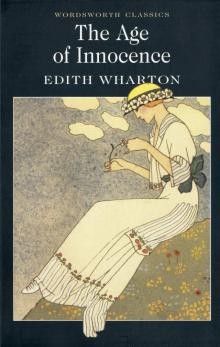 The Age of Innocence
The Age of Innocence The Reef
The Reef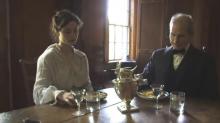 Summer
Summer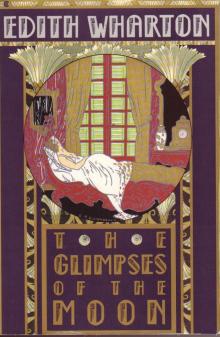 The Glimpses of the Moon
The Glimpses of the Moon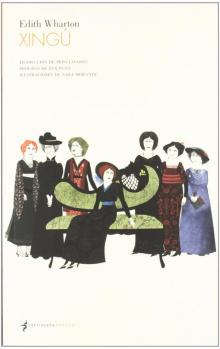 Xingu
Xingu The Fruit of the Tree
The Fruit of the Tree Fast and Loose
Fast and Loose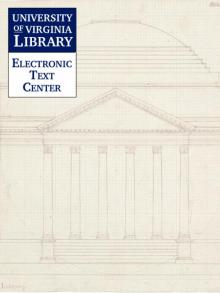 Artemis to Actaeon and Other Verse
Artemis to Actaeon and Other Verse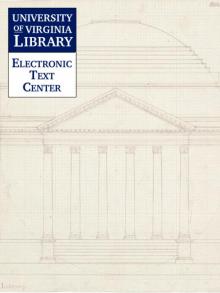 The Line of Least Resistance
The Line of Least Resistance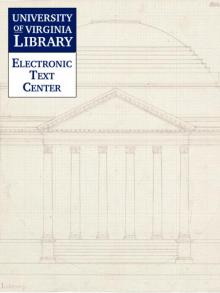 The Lamp of Psyche
The Lamp of Psyche The Reckoning
The Reckoning Afterward
Afterward The New York Stories of Edith Wharton
The New York Stories of Edith Wharton The 2014 Halloween Horrors Megapack
The 2014 Halloween Horrors Megapack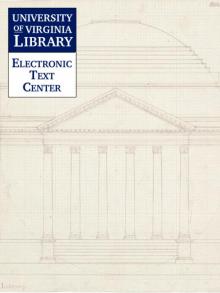 'Copy': A Dialogue
'Copy': A Dialogue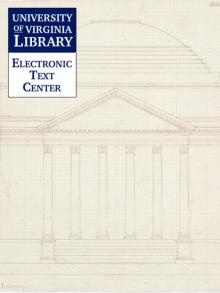 The Recovery
The Recovery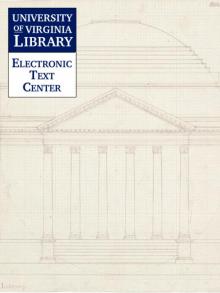 The Fulness of Life
The Fulness of Life Early Short Stories Vol. 1
Early Short Stories Vol. 1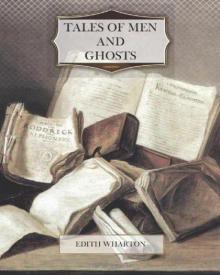 Tales of Men and Ghosts
Tales of Men and Ghosts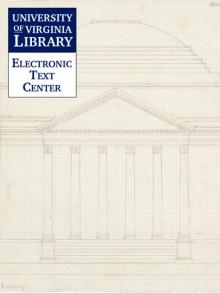 The House of the Dead Hand
The House of the Dead Hand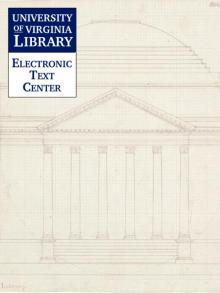 That Good May Come
That Good May Come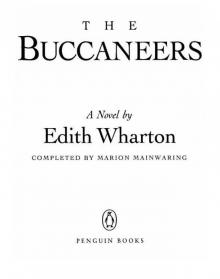 The Buccaneers
The Buccaneers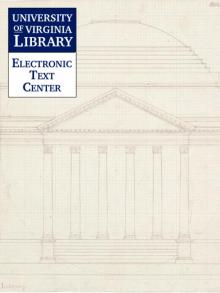 Other Times, Other Manners
Other Times, Other Manners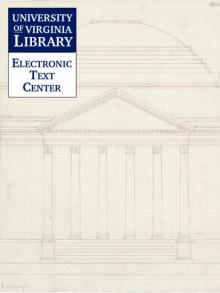 The Hermit and the Wild Woman
The Hermit and the Wild Woman Kerfol
Kerfol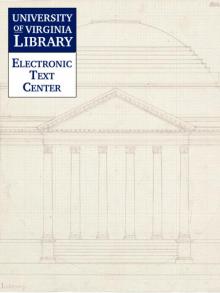 The Duchess at Prayer
The Duchess at Prayer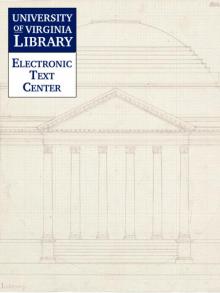 Bunner Sisters
Bunner Sisters The Choice
The Choice Madame De Treymes
Madame De Treymes Ethan Frome, Summer, Bunner Sisters
Ethan Frome, Summer, Bunner Sisters In Morocco
In Morocco The Valley of Decision
The Valley of Decision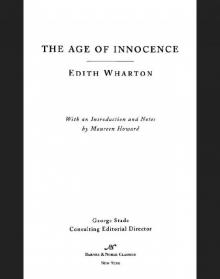 Age of Innocence (Barnes & Noble Classics Series)
Age of Innocence (Barnes & Noble Classics Series)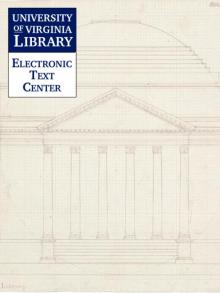 The Angel at the Grave
The Angel at the Grave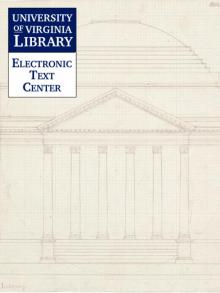 April Showers
April Showers Sanctuary
Sanctuary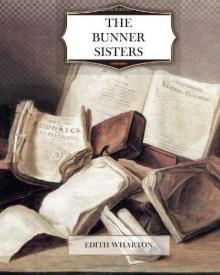 The Bunner Sisters
The Bunner Sisters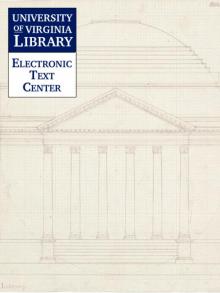 Mrs. Manstey's View
Mrs. Manstey's View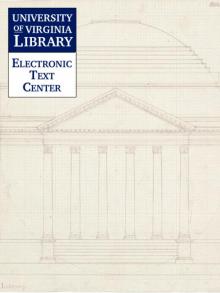 Writing a War Story
Writing a War Story The Custom of the Country
The Custom of the Country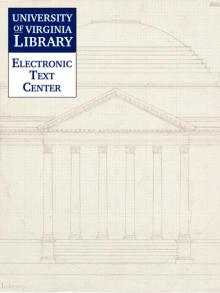 In Trust
In Trust The Triumph of the Night
The Triumph of the Night The Hermit and the Wild Woman, and Other Stories
The Hermit and the Wild Woman, and Other Stories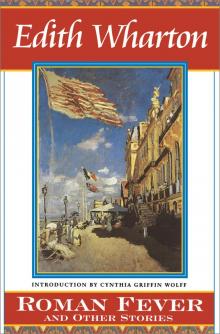 Roman Fever and Other Stories
Roman Fever and Other Stories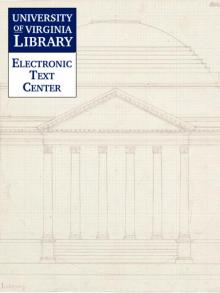 The Mission of Jane
The Mission of Jane The Descent of Man and Other Stories
The Descent of Man and Other Stories Coming Home
Coming Home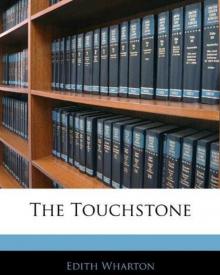 The Touchstone
The Touchstone Early Short Stories Vol. 2
Early Short Stories Vol. 2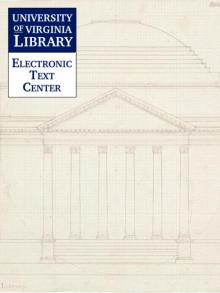 Edith Wharton's Verse, 1879-1919, from various journals.
Edith Wharton's Verse, 1879-1919, from various journals.